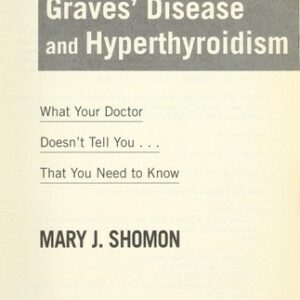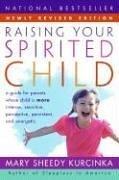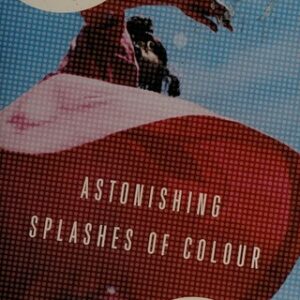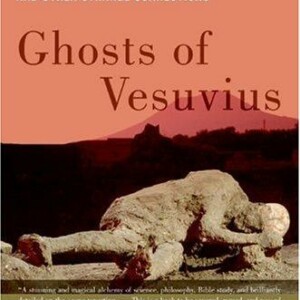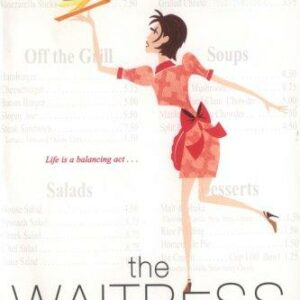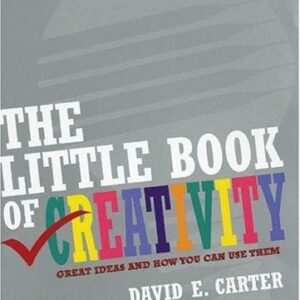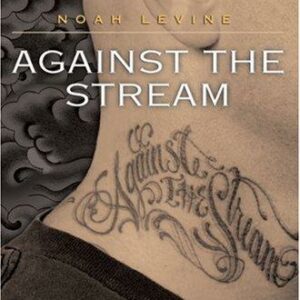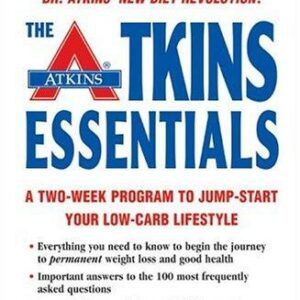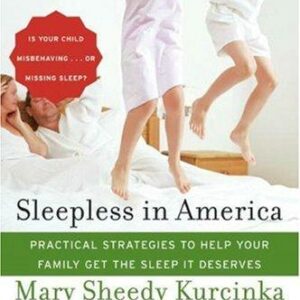On the Come Up
$23.00
| Title | Range | Discount |
|---|---|---|
| Trade Discount | 5 + | 25% |
- Description
- Additional information
Description
An NAACP Image Award Finalist
An ALA/YALSA Alex Award Nominee
AnnMarie is growing up fast. After years of living in foster homes and homeless shelters, the twelve-year-old girl can take care of herself and her ailing mother. At thirteen, she’s competing with other girls for the attention of older boys in the hip hop and rap scene of Far Rockaway. At fourteen, she is in love and pregnant, but dreaming big. Taking a chance, she auditions for an independent film and—astonishingly—lands a lead role. As she tries to raise her baby girl and make sense of her relationship with her baby’s father, her work on the movie offers AnnMarie a doorway to a wider world—Brooklyn, Manhattan, and the Sundance Film Festival.
With cinematic pacing and a vibrant voice, filmmaker Hannah Weyer’s unforgettable debut novel is a portrait of a tough, determined teenage girl striving to find the life she wants and the love she deserves.
“Luminous. . . . AnnMarie is a survivor with rare spirit.”
—People, four stars
“I couldn’t put this book down. This world, this voice, this young woman are all so vividly raw and honest, that my heart was broken open, and I was hooked until the very last page.”
—Kerry Washington, actress, Scandal
“Formidable. . . . A moving account of AnnMarie’s struggle to free herself of her baby’s poisonous father and leverage her experiences into a better life.” —San Francisco Chronicle
“Weyer writes with confidence and agility, and readers will quickly sink into the groove of her storytelling.” —The Wall Street Journal
“AnnMarie is a tenacious and lovable character. . . . Fans of Sapphire’s Push will especially appreciate the honesty and realism of filmmaker and first-novelist Weyer’s writing.” —Booklist
“I fell in love with AnnMarie Walker, a hopeful and headstrong heroine who invents her own chances, turning the smallest opportunities into rare achievements. Here’s a book for anyone who’s ever seen the way the sun shines in a classroom they cannot enter and still wanted that light to shine on them. First you have to want it and this is how it’s done, from victim to victor. A remarkable gift to readers.” —Tupelo Hassman, author of Girlchild
“Pitch-perfect. It’s impossible not to root for AnnMarie, a heroine as resilient as she is vulnerable. Weyer is a deeply humane writer who pulls the reader into an inner-city world that’s utterly distinct, yet profoundly relatable.” —Jonathan Odell, author of The Healing
“Vibrant. . . . Compassionate. . . . Inspiring . . . without losing its sharp, realistic edge.” —Publishers Weekly
Hannah Weyer is a filmmaker whose narrative and documentary films have been screened at the Human Rights Watch and the New York Film Festivals and have won awards at the Sundance, Locarno, Melbourne, Doubletake, and South by Southwest Film Festivals. Her screenwriting credits include Life Support (2007), directed by Nelson George, which earned a Golden Globe Award for its lead actress, Queen Latifah. Weyer has worked with teens in the media arts for the past fifteen years and, along with her husband, the filmmaker Jim McKay, started an after-school film club at a public high school in Brooklyn. On the Come Up is her first novel.
The questions and information in this guide are intended to enhance your discussion of On the Come Up by Hannah Weyer.
1. The book begins with an illustration of Far Rockaway and some statistics about its geography, etymology, and population. Why do you think the author included this? What role does setting, or place, play in the story, and how does it inform the choices AnnMarie makes?
2. When the reader first meets AnnMarie she is selling homemade popsicles along the beach, wearing a t-shirt that reads “Sexy Sweet.” What do these details signal about AnnMarie? Does her behavior remain consistent throughout the book, or do certain traits change over time? How would you describe AnnMarie at the beginning of the novel? At the end?
3. Crystal’s departure from Far Rockaway is the change in status quo that begins the novel. Why is this incident significant, and how does it set the tone for what follows?
4. What role does family play in the novel? What family legacy does Blessed pass on to AnnMarie? How did AnnMarie’s understanding of her “family tree” shape or influence her choices as an adolescent and teenager?
5. AnnMarie never knew her father. Did his absence influence the choices she made? Did the stories she was told about him shape her imagination and sense of safety?
6. The chapter in which Blessed relives her flight from Trinidad is entitled “Baby Love.” What does this title refer to? AnnMarie refers to her mother as a “hero thief.” What impression or thought does this conjure?
7. How does AnnMarie’s understanding of and sympathy for Blessed change through the course of the book?
8. What factors motivate AnnMarie to want to start a family with Darius?
9. AnnMarie is often either victimized by violence, or retaliating against it. Is her retaliation justified?
10. One theme the book explores is how a child’s sense of self-worth and self-esteem can be stripped by constant contact with violence. Where does this occur in the story?
11. What role does the neighborhood of Far Rockaway play in the story? Describe some of its characteristics.
12. What are the destructive and constructive forces at play in AnnMarie’s life? How does AnnMarie’s exposure to new experiences shift her expectations about herself and those around her? What are some of those experiences?
13. Before meeting Darius, AnnMarie suffers many acts of violence against her — Grandma Mason, Brittany, Carlton. Yet she falls in love with a person prone to violence himself. What do you make of this? Is it true, we seek what we know? Is Darius her protector or violator?
14. When AnnMarie is with Lucinda, she manages to disentangle herself from Darius once and for all. Prior to this, what are some of the steps she takes, consciously and unconsciously, to do so?
15. Ultimately, how does AnnMarie disentangle herself from the people in her life who are violent? Is there a single identifiable point when AnnMarie’s perspective begins to shift?
16. Who are the role models in AnnMarie’s life? How do they directly or indirectly influence the choices she makes?
17. At the end of the book, AnnMarie leaves home to create a new one. What are some ways personal space and/or boundaries are explored in the book?
18. Though the novel is written in the third person, it echoes AnnMarie’s distinctive patois. Why do you think the author decided to tell the story this way? How did it affect your reading experience? How would your experience have changed if the book had been written in grammatically correct English?
19. The book is based on the real life story of Anna Simpson, who co-starred in the film Our Song in 2000. Why do you think the author considered Anna’s story worthy of adaptation? Do you agree?
Chapter 15
All the bus rides back and forth, AnnMarie had time to think. Out to Jamaica where the school was. The Ida B. girls housed on the ground floor of a three-story cement building used by Rainbow Academy, a suspension site for violent offenders. All the last-chance kids no school wanted. The bus winding along Snake Road past the airport, planes hovering mad low in the icy sky, one after another, their bellies looming as they made their descent. AnnMarie would turn her face from the window. She thought about the little things. Like how she had to pee all the time, how she felt bloated like a whale—face, feet, hands, stomach, legs—but she couldn’t help herself. Pangs a hunger gnawing, she’d go through boxes of saltines with cheese spread, peanut butter out the jar, oranges, mangoes, cornflakes with milk. Song fragments drifted in. She’d try to piece them together, search for the words gone missing but was frustrated by her own fatigue.
She thought about the last time she got up on stage to sing. At the white school over in Cedarhurst. About Mr. Preston’s expression, that look of relief. All the white kids filing out. Principal Man never made no introductions. A whole school full of kids but they shared no conversation, not even a hello. AnnMarie puzzled over it.
What difference do it make anyway. Your feet get swelled, you gain some weight. You buy a slow girl some french fries.
—
On Wednesday, Crystal was the only girl sitting at the long metal table when she walked into Room 5 at half past nine.
Where is everybody? AnnMarie asked as she dumped her backpack on the floor.
Leandra went to get a sonogram, Miss Westwood said. I don’t know where the other girls are.
AnnMarie said, You okay, Miss Westwood?
I’m okay.
Ain’t you sleeping?
Not so well.
Maybe you pregnant too, AnnMarie joked.
No, AnnMarie, I’m not pregnant. I’m disappointed. I expect you girls to accomplish something here.Now take out your math sheet from yesterday and let’s go over the answers.
AnnMarie dug through her backpack, found the worksheet bunched up at the bottom.
She looked at it. I ain’t finished mines.
So finish it now, Miss Westwood said sharply.
What she tripping for, AnnMarie thought.
She tried to catch Crystal’s eye but that girl on another planet.
At Darius’ house that evening, she sat at the kitchen table with Vanessa, watching two grown men carry first his turntables, then his speakers, up from the basement and out the front door.
What they doing, AnnMarie said quietly.
Darius’ sister shrugged. They been after him for a while. Phone ringing off the hook.
Who been after him, AnnMarie asked.
Z-Sounds. He got his shit on installment. Fuck if he making the payments.
AnnMarie felt a stab of panic so she stood, crossed to the basement door and listened. Installment? He never told her nothin’ about installments. She thought he was fine with money. That they was fine. She heard his footsteps now and backed away as he strode past her and out the front door, the look on his face silencing her.
Vanessa got up and stretched. Then she went outside to watch. AnnMarie followed.
They were loading Darius’ equipment into a black van. Another homie leaned against the driver door, hands folded loose over his crotch, just leaning and waiting, his eye on Darius who stood barefoot on the front porch.
Vanessa sucked her teeth.
Shut yo’ mouth, Darius said. Why you even standing here?
Fuck you. I live here.
Vanessa was further along than AnnMarie, in her seventh month, and her sweatshirt rose up over her belly showing skin.
Look at you, y’all like some ghetto ho, Darius said as he went into the house.
Vanessa tsked, At least I ain’t getting repo’d.
AnnMarie turned, watching the van pull away with Darius’ equipment inside. She could feel the stillness settle on her shoulders, the van disappearing around the corner, Vanessa quiet now in Darius’ absence.
She went down to the studio room to ask him why. To say what happened, baby.
All the wires pulled loose from the walls, laying on the floor like black snakes uncoiled and lifeless.
Darius was putting on his shoes. He said, Don’t say nothing.
AnnMarie tsked, frowning.
Did I? Did I say something, she asked, watching him. Seeing all the pent-up, unspoken inadequacy written as anger across his face. Things gone wrong and nothing to do to stop it. ’Cept a fight, maybe. A fight be good for something. She felt it coming.
The next day, Miss Westwood was happy again, six girls at the metal table when AnnMarie walked in. Camille was saying, Shoot, I get me a C-section. No way I’ma be ripped to shreds. My va-geegee too precious.
Pietra laughed, then groaned, laying her cheek flat on the table. I already got these pains back here, she said.
Miss Westwood reached over and rubbed her lower back, saying, Listen girls, her voice rising above the chatter, giving life is a beautiful thing. A woman’s body is made to do this.
Yeah, but I ain’t no woman, Camille said, I’m still a child, Miss Westwood, and I ain’t gonna let no baby split me in two. Hell, no . . . Camille flounced down next to the teacher and leaned into an embrace.
Don’t worry, you’ll be ready, Miss Westwood said. Her eyes rested on AnnMarie for a moment but she didn’t say nothing about the fat bruise on her cheek.
After the repo van had gone, Darius had chased her up the stairs, banging her up against the wall. Stop, Darius, why you buggin’? she’d said but his backhand slap knocked her silly, sent a flash a pain across her face. White dots popping, face on fire. For a minute, she’d been blind.
Muthafucka. She’d picked a point on the floor and made her blurry eye go there, even with his mouth right up to her ear. You think you all that, up in my business all the time. Then his hand went around her throat and squeezed. What you got to say now.
—
Maybe she don’t notice, AnnMarie thought. Skin dark chocolate, maybe she don’t see. Then again, this a school after all, not a police station.
Wings: Insect wings are found in many different shapes and sizes. They are used for flying, but also to attract a mate or hide from predators.
AnnMarie tried to focus but couldn’t. Fuck him. Punk-ass muthafucka. Think he the bomb. Think he it. Fuck you, she thought. You no longer the father a my child. I do this my own damn self.
Most insects have two pairs of wings.
Most insects have two pairs of wings.
Most— AnnMarie stood up, walked out of the classroom and down the hall to the drinking fountain. She took a sip a water, wandered down to the front door and looked out the window see what the weather like. Sun out, tha’s good. Maybe she skip out after lunch. She went back to the drinking fountain, stared up at the bulletin board. Somebody had posted a flier. Right in between TEEN SUPPORT GROUP and ARE YOU EXPECTING?
Movie Tryouts!!
Girls Wanted.
All shapes and sizes.
No model types.
Come as you are.
Two days later, she woke up not knowing where she was. She thought she was on a school bus, rumbling over some rough road somewhere way out there, far, far out at the edge of an island, the water glistening so bright she thought her eyeballs would split open but when she let her lids peel apart, the world was dark, everything around her dark and sleepy. She felt the bed beneath her, she was in her own bed, bladder full. She didn’t want to get up so she snuggled deeper, looking at the clock radio. Three o’clock in the morning. That’d been happening lately. Three o’clock, she’d wake up with that anxious feeling. Couldn’t go back to sleep.
She tried to push it aside but there it was: I don’t want this baby. I do not want this baby. Usually she’d roll toward Darius, pull his arm over her waist, find his heart beating there and she’d be okay. But she hadn’t seen him since the fight. Two days. She wondered what he doing.
She sat up in bed, peeled back the curtain and looked out at the gray night. Below her, she watched the streetlamp flicker. A woman came around the corner and passed beneath it, then suddenly ran off in a sprint. Was she running from something or to something? AnnMarie couldn’t tell. There’d been no sound, no other person. What you running for, AnnMarie thought.
She reached over the side of the bed and felt around on the floor, found her backpack, pulled out the flier she’d taken off the wall.
She read it again. She wondered where 404 18th Street was. Flier said Manhattan. She’d never been to Manhattan before. She wondered if they needed girls who could sing.
US
Additional information
| Weight | 8.8096 oz |
|---|---|
| Dimensions | 0.7100 × 5.2200 × 7.9800 in |
| Imprint | |
| Format | |
| ISBN-13 | |
| ISBN-10 | |
| Author | |
| Audience | |
| BISAC | |
| Subjects | lgbt fiction, lesbian fiction, lgbt books, african american fiction, african american literature, lesbian books, fiction books, books fiction, african american books, contemporary romance, lgbt novels, african american urban fiction, urban fiction, black books, lesbian novels, gifts for brothers, hood books for inmates, urban books for inmates, Friendship, african american, relationships, family, lesbian, romance, love, drama, fiction, LGBTQ, coming of age, lgbt, realistic fiction, novels, FIC018000, FIC043000, urban, african american novels |


